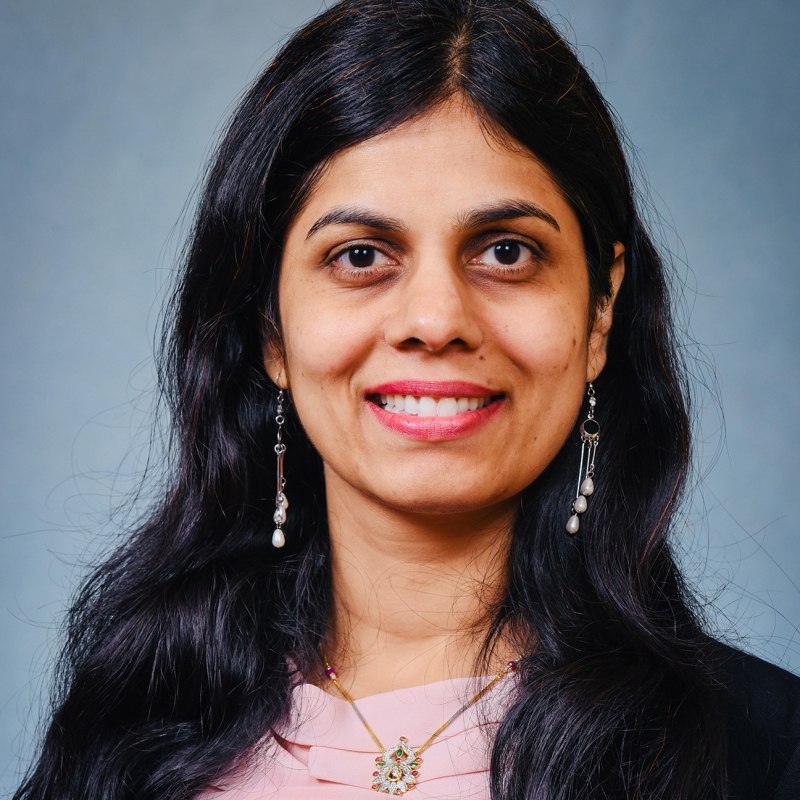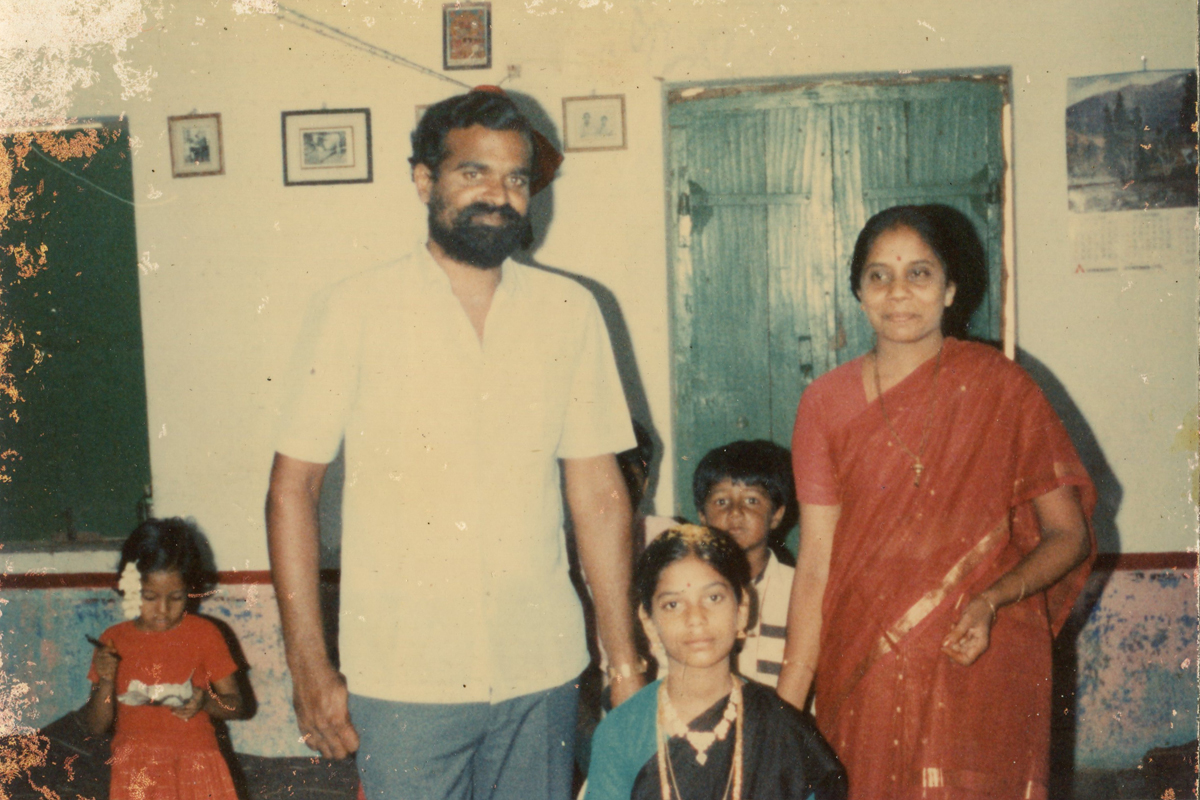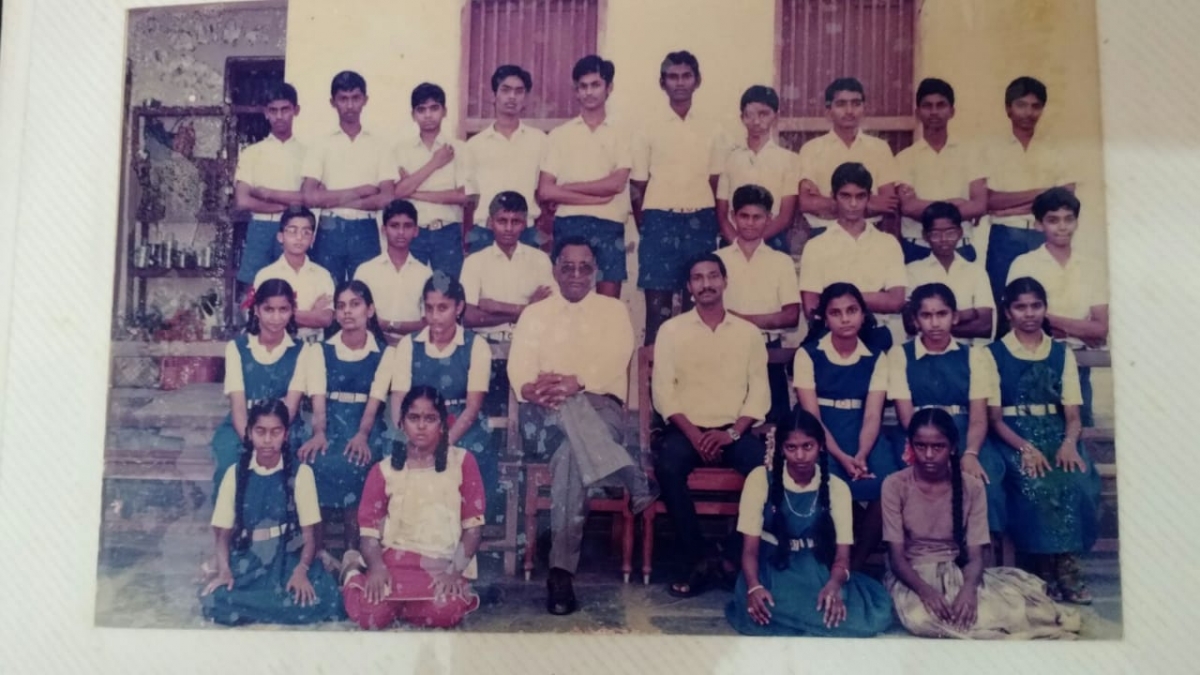 It is more than 8,000 miles from Hyderabad, India, to Atlanta. That’s how far Nalini Polavarapu traveled in 2001 to start her journey to the leading edge of innovation in the Fortune 500 company Bayer.
It is more than 8,000 miles from Hyderabad, India, to Atlanta. That’s how far Nalini Polavarapu traveled in 2001 to start her journey to the leading edge of innovation in the Fortune 500 company Bayer.
Now living in Chicago, Nalini is the company’s head of data science strategy, a role that is exhilarating in its push for innovation to meet customers’ needs and raise revenues. But it is also extremely challenging, because innovations are disruptive and people resist change. Leading change is fraught with complications and doesn’t get any easier when the person in charge is a woman of color.
Nalini navigated the turbulent waters with cutting-edge skills and knowledge acquired from Georgia Tech, combined with an abundance of “soft skills” – personal attributes that enable someone to interact effectively and collaboratively with other people.
“I devote considerable amounts of time to cultivating leaders, looking for ways to encourage and persuade people to develop more than they are prepared to,” Nalini says. “I am also passionate about inclusion and diversity in STEM. I lead the Women in Data Science (WiDS) network at Bayer.”
Nalini’s initial goal in coming to Georgia Tech was to earn a master’s degree in bioinformatics. When she left in 2007, she had earned three degrees, including a master’s in computer science and a Ph.D. in bioinformatics.
 Nalini has come a long way in another sense. “My parents did not go to college, and I grew up in a small town in India,” she says. “I am a first-generation graduate and forever indebted to Georgia Tech for giving me the finest educational opportunity.”
Nalini has come a long way in another sense. “My parents did not go to college, and I grew up in a small town in India,” she says. “I am a first-generation graduate and forever indebted to Georgia Tech for giving me the finest educational opportunity.”
What was your path to your current position?
I came to the U.S. in 2001 to pursue a master’s degree in 2001. Back then, bioinformatics was a newly emerging field. It piqued my interest because of its interdisciplinarity and promise of finding solutions to global problems with massive societal impact. Georgia Tech was one of the few schools offering a master’s in bioinformatics back in 2001. Because of its strong reputation in engineering and computer science, Tech stood out to me.
While at Tech, I was in awe of the intellectual prowess of the professors and students. I took advantage of the enormous learning opportunities, and I devoted myself to building a strong foundation in STEM fields by taking as many classes as possible. What started as the pursuit of one degree led to the completion of three.
When I got introduced to artificial Intelligence (AI), it became my passion and has been the core of the degrees and projects I completed at Tech and beyond.

As I was graduating, I came in contact with my current employer at a Georgia Tech career fair. A conversation led to a job offer, and I started as their first data scientist/AI scientist. In this role, I had the unique opportunity to create innovations, build the team, and influence the cultural change to drive the digital transformation of a global Fortune 500 company in a traditional life sciences industry.
What is a typical day in your current position?
My role is to lead digital transformations that will drive personalized value for customers while providing top-line and bottom-line growth for our company. This involves creating inventions using digital technologies, applying these inventions to enable new business models, and influencing the organization at all levels to drive cultural change.
I spend much of the day leading/attending business meetings with senior leaders, peers, and partners, as well as coaching and mentoring direct and indirect reports and colleagues who seek advice. The rest of the day goes into preparing/organizing internal talks, events, and meetings; researching/evaluating emerging technologies/companies; contributing to our inclusion efforts; representing Bayer at external venues; and personal development.
What has been the greatest challenge in your professional life so far?
We started the AI journey more than 10 years ago, long before it became popular as it is today. Being in a traditional industry, I encountered huge cultural resistance and pushback. The AI inventions were not fully understood and were seen as replacing humans instead of being seen as enhancers of humans’ life.
In addition, we had no template or prior experience to guide us. I had to work hard, develop, and adjust to overcome these challenges. I learned new ways of engaging and communicating what the technology can do for business, for people, and their roles. Luckily, I had mentors and champions who advocated for me and helped me navigate the path.
What has been the most gratifying experience of your professional career so far?
I work for a company that is advancing life – using science and imagination to help better people’s lives by advancing health and nutrition. The inventions that came from my team will contribute to ensuring food security for 9 billion people by 2050. In addition, I feel so gratified when people I led or mentored tell me, “I developed under your leadership. Because I followed your advice, I have been selected for this accelerated career opportunity.”
It is also satisfying to see that individuals who started in my team are now in senior leadership roles leading major transformations in our company and elsewhere.
What is the most important thing you learned at Georgia Tech to make you successful professionally?
Life-long learning, initiative, hard work, and perseverance.
The computer science and mathematics classes and the dissertation experience at GaTech gave me the strong foundation that enabled me to create disruptive AI innovations in the early years of my career.
Georgia Tech has a very special place in my heart. Many times tears flow from my eyes when I think of the school and what it has given me. I developed into a whole individual and discovered myself at Tech.
I have the same special sentiment for my mentor, John McDonald. He believed in me more than I did; his belief made me stretch and strive more. He gave me autonomy to pursue my passion, while providing guidance and encouragement. The people in the lab were my family in the U.S. I loved spending time with them. They gave me strong and much needed professional and personal support, am forever indebted to them.
What is your next goal in your career path?
To be an executive leader in a global company contributing to finding solutions for major global issues. I am preparing myself by improving my business acumen, leadership, and influencing skills and by building a network.
What career advice would you give to current students at Georgia Tech?
Georgia Tech has everything you need. Take full advantage of the opportunities at Tech. At the same time, chill out and build friendships and “your people”.
What is your most vivid memory of your time at Georgia Tech?
I treasure the time with friends, going out for lunch at the Student Center, and working out in CRC at the end of the day. With a few close friends, I spent many evenings in the courtyard of a dear friend who lived nearby in Midtown, just goofing around. I was fortunate to have a good circle of friends, all of whom are special in their own way. Laughter is constant.
What’s something about yourself that’s not obvious to your colleagues?
I can sit cross-legged on the floor for few hours without moving. The length of time correlates with how composed I am in my mind.
If you could have dinner with any person from history, whom would you invite?
Mahatma Gandhi, for his unique humble leadership. He is revered in the hearts of many millions, past and present. He led a national movement based on nonviolence to achieve social and political progress.
Figure captions
Middle photo: Young Nalini Polavarapu with father, Jagan Mohan Rao (left), and mother, Nagamani (right). Behind are cousins Sangheetha Punukullu (left) and Naren Chalasani (right) (Courtesy of Nalini Polavarapu)
Bottom photo: Nalini (second from left in first row of chairs) in 9th grade at Little Flower School, Mudinepalli, Andhra Pradesh, India (Courtesy of Nalini Polavarapu)


